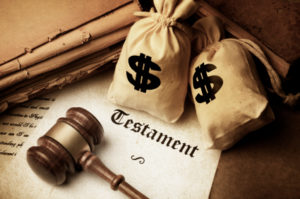Bankruptcy Court: Inheritances

Whether Chapter 7 or Chapter 13, inheritance money received during your bankruptcy will generally be considered an asset. Assets can be protected in some cases but will often become part of the bankruptcy estate in some way or another.
Chapter 13
When you file for Milwaukee Chapter 13, your property is not liquidated as in a Chapter 7. In return, however, you’re required to pay back your debts through a repayment plan. Inheritance money is considered an asset, so trustees will generally want you to pay more to your unsecured creditors. In other words, inheritance money can increase the amount of your monthly plan payment.
The 180 Day Guideline
For Milwaukee Chapter 7 cases, any inheritance money you acquire within the first 180 days after filing would be considered property of the bankruptcy estate. This means the nonexempt portion of the money you receive would be taken by your trustee and distributed to any unsecured creditors.
In Chapter 13, you generally get to keep your assets. However in these cases you would still be required to pay. A general rule of thumb is that you’ll be required to pay at least the nonexempt portion of the inheritance.
If you receive inheritance money after the 180 day period in a Chapter 13, most trustees will argue that you should be required to pay it into your plan.
If you’re thinking about filing for bankruptcy and have received or will be receiving an inheritance, contact the experts at Burr Law Office. We’ll help you figure out what the best steps are and how to work with the Milwaukee bankruptcy court to settle your case.


